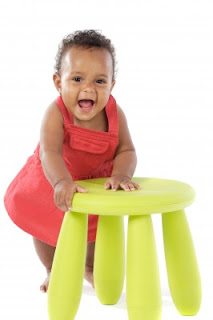A study conducted by the University of Rochester Medical Center in New York finds that a third of U.S. parents know surprisingly little about typical infant development.
“There are numerous parenting books telling people what to expect when they’re pregnant. But once a baby is born, an astonishing number of parents are not only unsure of what to anticipate as their child develops, but are also uncertain of when, how or how much they are to help their babies reach various milestones, such as talking, grabbing, discerning right from wrong, or even potty-training,” said Dr. Heather Paradis of the University of Rochester Medical Center in New York.
Parents were asked to complete an 11-question survey designed to see which parents were well prepared and which were not.
The survey asked questions like, “Should a 1-year-old child be able to tell between right from wrong?” and “Should a 1-year-old child be ready to begin toilet-training?”
The correct answer to both is no.
Parents who got four or fewer correct answers were considered to have low parenting knowledge.
Other tests included teaching their child a new task, how often they engaged their children in enrichment activities, such as reading books, singing songs or telling stories.
Researchers found that 31.2 percent of the parents had a low level of knowledge about what to expect from their child, and this was strongly correlated with lower parental education level and income.
“The fact that almost a third of parents could only answer four out of eleven questions correctly was very surprising to us,” Paradis said
Here are a few Milestone Highlights:  1-3 months
1-3 months
- Support head and upper body when on stomach
- Open and shut hands
- Bring hands to mouth
- Grab and shake hand toys
- Swipe and bat at dangling objects
- Push down legs when on a flat surface
- Follow moving objects
- Roll over both ways (stomach to back, back to stomach)
- Sit up with, and then without, support of his hands
- Reach for object with one hand using the raking grasp
- Transfer objects from hand to hand
- Support whole weight when on legs and held upright
- Explore objects with hands and mouth
- Explore objects by banging and shaking
- Get in and out of a sitting position independently
- Get on hands-and-knees position and crawl
- Pull self up to standing position, walk holding on to furniture, stand without support and, eventually, take a few steps without support and begin to walk
- Use pincer grasp (thumb and first finger)
- Place objects into container and take them out of container
- Begin to do more functional activities, such as hold a spoon or turn pages in a book
- Say “mama” and “dada” and use these terms specifically referring to a parent
- Use exclamations such as “oh-oh!”
- Use simple gestures, such as shaking head for “no” or waving for “bye-bye”








